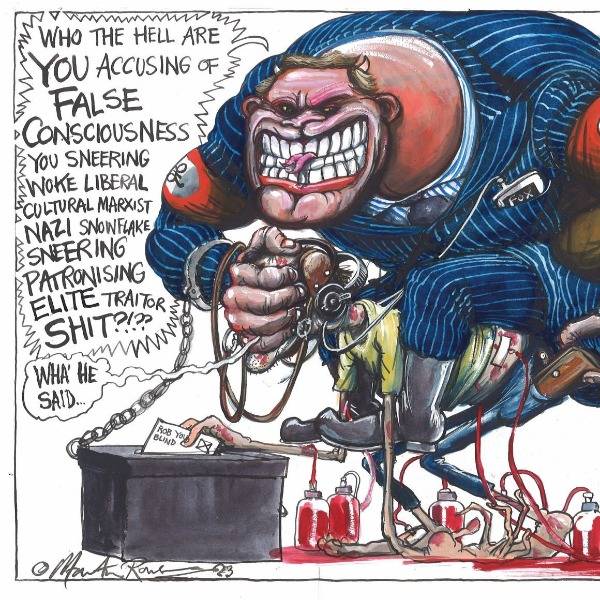This article is a preview from the Summer 2018 edition of New Humanist
For journalists there are few sweeter moments than exposing and disrupting a hidden network. One of those moments came in March when Andy Davies of Channel 4 News politely doorstepped Alexander Nix, the CEO of Cambridge Analytica, after undercover filming had caught him and his colleagues apparently boasting to prospective clients of dirty tricks and honey traps to scupper political rivals.
“Have you ever used entrapment in the past as that appeared to be what you were offering our undercover reporter?” said Davies.
“Appearances can be deceptive,” Nix replied, almost, it seemed, trying to smile. The company claimed they were themselves scoping out dodgy clients.
“Did you mislead parliament over the Facebook issue?” Davies asked next.
“Absolutely not,” came back the indignant reply as Nix was whisked through the door to safety.
There, caught on camera, was the moment when the sure confidence of Nix’s professional life suddenly disappeared. He was suspended the same day.
Nix is an Old Etonian. During the undercover filming he and his colleague, with backgrounds in finance and high-level PR, had boasted not just about sending “some girls around”, but of having a network of former MI5 and MI6 agents they could call on.
On its website Eton College puts “fostering self confidence” at the top of its aims, though tolerance and integrity are on there too. And while there is a list of Old Etonians gone rogue – from Jeremy Thorpe, the Liberal Party leader accused of attempted murder, to politician Jonathan Aitken, jailed for perjury – it is symbolically the ultimate purveyor of access to power. That makes it worth scrutiny.
According to Stefan Stern, a specialist in business ethics and a visiting professor at Cass Business School: “One of the things parents are paying for by choosing these elite schools is social selection – trying to create an elite peer group for their children; a network. They are also buying confidence. This confidence is absolutely priceless in a competitive world where how you present yourself matters. But when it becomes reckless or ill-founded over-confidence, bad things can happen.”
One solution has been the idea of joining the club to broaden and democratise the network. Whether that’s women in the freemasons, or the Cogito School Foundation charity each year sending 100 bright children from the Middle East, including Palestinian refugees, to the world’s top private schools, including Eton.
Baroness Floella Benjamin, who came as a child from the Caribbean and built a career in acting and children’s TV before entering politics, has spoken of the need to be inside the establishment to change it; sitting on quango boards and charity committees.
But who controls the entry point to these institutions? Since the 1980s there’s been a huge expansion of government-appointed quangos rather than elected bodies to run public institutions and services such as national museums and broadcasters – including the board of Channel 4. The Commissioner for Public Appointments’s report into journalist Toby Young’s aborted role at the Office for Students (hired by Old Etonian and friend Jo Johnson) revealed a striking lack of due diligence in the vetting process. The highly qualified candidate Nazir Afzal, the former chief prosecutor for North West England, publicly stated his bafflement that he had applied and never even been called for interview. Social media scuppered Young’s appointment, after republishing his controversial comments on women and eugenics faster than he could delete them online. But he was unusual. The bosses of Cambridge Analytica did not seek attention, and although they now appear to be closing the company, their networks remain.
The reality is that our governments tend to trust such networks. A recent Freedom of Information Request revealed how both Labour and Coalition/Conservative governments paid large sums to Cambridge Analytica’s parent company SCL for research. We are still relying on whistleblowers and individual reporters to highlight questionable behaviour by powerful individuals; mostly men. But perhaps, rather than joining the old networks, we should be creating open alternatives. Since the Maltese journalist Daphne Caruana Galizia was murdered in October while investigating financial corruption, journalists from a number of countries have come together to continue her research. Networks like the Daphne Project could work for us all.

